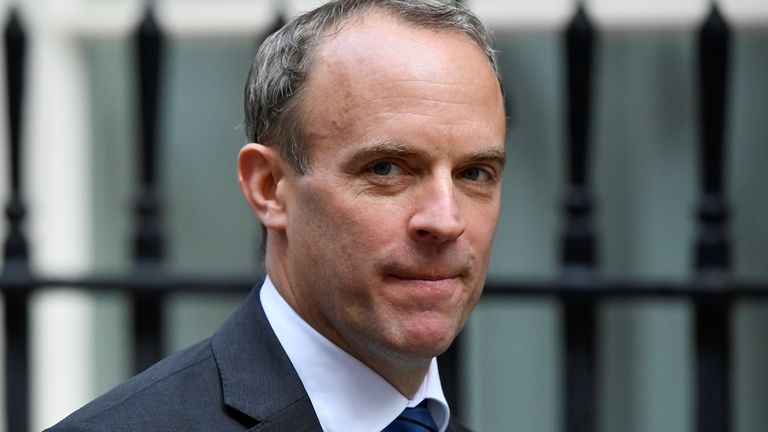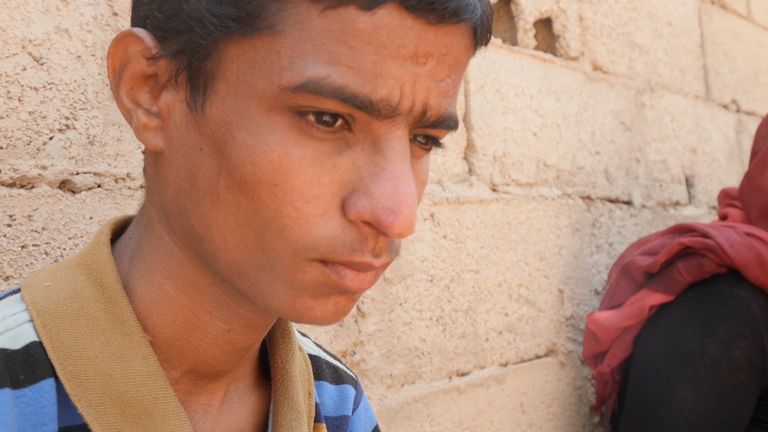COVID-19: UK calls for temporary ceasefires to allow vaccine rollout in world’s war zones
Foreign Secretary Dominic Raab is calling for a UN resolution for ceasefires across the globe to allow those living in war zones to get COVID vaccines.
As he chairs a UN Security Council meeting on Wednesday, Mr Raab will urge world leaders to agree a resolution for negotiated vaccine ceasefires.
The foreign secretary believes there is a “moral duty to act” in order to prevent more than 160 million people being excluded from vaccines because of instability and conflict, including in Yemen, Somalia and Ethiopia.
Mr Raab will warn that allowing COVID-19 to spread in areas where there is no vaccination programme could allow new coronavirus variants to take hold and risk further waves of infections across the world.
The plan for temporary ceasefires would allow charities and healthcare workers to safely provide jabs to people living in active conflict zones, as well as refugees.
The foreign secretary will also urge nations to support equitable access to vaccines so that the most vulnerable people can be offered protection from the virus.
He will underline how barriers such as vaccine storage, delays in regulatory approval and the management of complex supply chains could hinder the rollout of COVID jabs in some countries.
Ahead of Wednesday’s meeting, Mr Raab said: “Global vaccination coverage is essential to beating coronavirus.
“That is why the UK is calling for a vaccination ceasefire to allow COVID-19 vaccines to reach people living in conflict zones and for a greater global team effort to deliver equitable access.
“We have a moral duty to act, and a strategic necessity to come together to defeat this virus.”
Ceasefires have been used to vaccinate vulnerable communities in the past.
In 2001, a two-day pause in fighting in Afghanistan gave 35,000 health workers and volunteers the opportunity to vaccinate 5.7 million children under five against polio.
Sam Nadel, head of policy and advocacy at Oxfam, described the COVID vaccination ceasefire call as “a welcome step”.
“The lack of progress towards peace is leaving millions of people suffering from the impacts of war and the global COVID-19 pandemic, whilst limiting humanitarian access to extremely vulnerable communities,” he said.
“However, without a massive increase in vaccine production, countries enduring conflict will not get enough doses of COVID-19 vaccines for everyone that needs one.
“The UK government must unblock the supply problem by insisting the vaccine science and know-how is no longer treated as the private property of a handful of pharmaceutical corporations but shared with qualified manufacturers around the world, so that production can be urgently scaled up.”
The UK has pledged up to £1.3bn of overseas aid in the battle against coronavirus, including £829m for the development and distribution of vaccines, treatments and tests.
Source: Read Full Article




